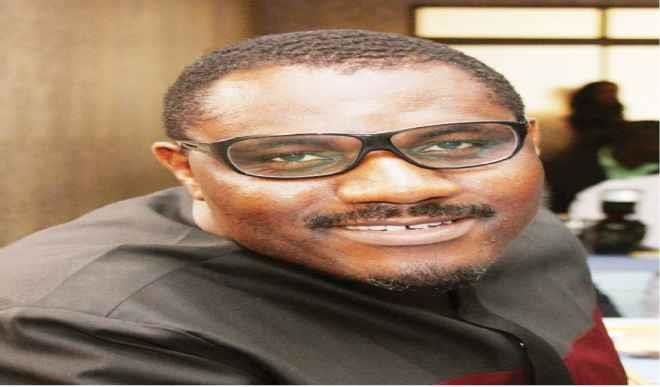Toni Kan’s ‘Carnivorous City’ will eat you up
Many great writers have woven stories against the backdrop of famous – or even infamous – cities. Toni Kan, famous (or infamous, really) for writing raunchy short stories for a huge audience, via Hints Magazine, has evolved into a kind of wordsmith which breathes life into characters by first of all detailing the sprawling canvas […]


Many great writers have woven stories against the backdrop of famous – or even infamous – cities. Toni Kan, famous (or infamous, really) for writing raunchy short stories for a huge audience, via Hints Magazine, has evolved into a kind of wordsmith which breathes life into characters by first of all detailing the sprawling canvas on which their lives unfold. The Carnivorous City is his first book after that other risqué one he offered some years back, the collection of short stories called Nights Of The Creaking Bed. This time, though, he’s armed with a deceptively simple premise: a Lagos ‘Big Boy’ called Sabato goes missing without a trace, leaving his more down-to-earth brother Abel, from Asaba, to deal with the events that follow.
I am not sure if Kan’s naming of the gentler brother as Abel serves to position the other as a veritable ‘Cain’. If not, then it is a delightful coincidence, because as the tale unfurls, the Lagos-dwelling sibling is revealed to be an enfant terrible of great proportion. But still, I found myself, oddly, rooting for Sabato, as devious, and as full of chicanery as he is shown to be. That fondness also made me feel a tinge of anger at the romance that blossoms, nay, festers between Abel and his sister-in-law Ada. It festers like a dark fungus, corrupting and tainting in its wrongness, but ultimately becoming a mushroom, at once juicy and toxic.
Lots of contemporary fiction coming from Nigeria tend to be verbose, slathering one unrecognizable word after another in an attempt at sophistication, but Kan’s book thankfully refrains, and from that projecting a kind of kinetic elegance that only one in love with – and loved by words, would dare. The spare, simple words ‘Soni is missing’, began the book, setting the tone. In classic fish-out-of water mode, the story shapes up Abel with all the needed dimensions, using him cleverly to tell tales of various parts of Lagos, dividing them inadvertently by ‘boroughs’ a la New York, in a manner of speaking. One scene would present Ewa Agoyin with Agege bread, while the next would casually mention Chianti, that most classy of wines.
We meet super-rich fiends, and villains drenched in squalor, as well as everything in-between. And mind you, they are not gratuitous portraits of colourful individuals made to fill the pages, but genuine, well-fleshed-out characters who serve the story. Back to the story, it is structured in a way like a classic heist story, but it has elements of romance (forbidden, of course), dark comedy, and stark drama sometimes devoid of irony, daring you to comprehend in the way only a Lagosian would.
Lust, of course, is a major player in Kan’s book, with an almost obsessive mention of the word ‘bosom’ (I lost count at four). But it is never in a way that distracts, but rather in a matter-of-fact way, and which helps cement the fact that this is, indeed, an original tale that slips from Kan’s ownership, telling itself, becoming itself in ways that only original stories do, you know, just with more lust than most.
Kan’s deft usage of pop culture, and sometimes even political zeitgeist, gives ‘Carnivorous City’ an almost righteous form of chutzpah, a chip on the shoulder that shuns any wink-wink stance. The reigning brats of Nigerian music are name-checked, almost in the same breath as the most popular American TV shows. It is difficult to say how all that works into one of the successes of this book, but it does. It is almost unbelievable that all this dizzying information, with the story to boot, are all neatly tucked into the somewhat scant 241 pages of the book.
Some of the most memorable inhabitants of Kan’s book, for me, remain the policemen – and women. Just like their non-fiction counterparts on our roads, alleys and police stations, they are deeply flawed and reflective of the average Nigerian, Lagosian or otherwise. Some of their story arcs, though minor, provide a kind of glue, sticking one scene to the other, in a scandalous origami beast of a yarn which the writer has crafted.
In a way, the ending of the book is predictable from the very beginning. But what the reader can never guess, would be the twists and which lead there, as the motives and actions of the main and supporting characters are navigated. There is lust, there is death, and there is more danger than both of them. This is, after all, a book faithful to the titular metropolis, and its darkness, even if at the very end some light flickers. I’m just not sure if it’s not a spark about to burst into flame, beautiful and destructive all at once. ‘The Carnivorous City’ is that rare animal, an unpretentious tale about the pretentiousness of Lagos.
